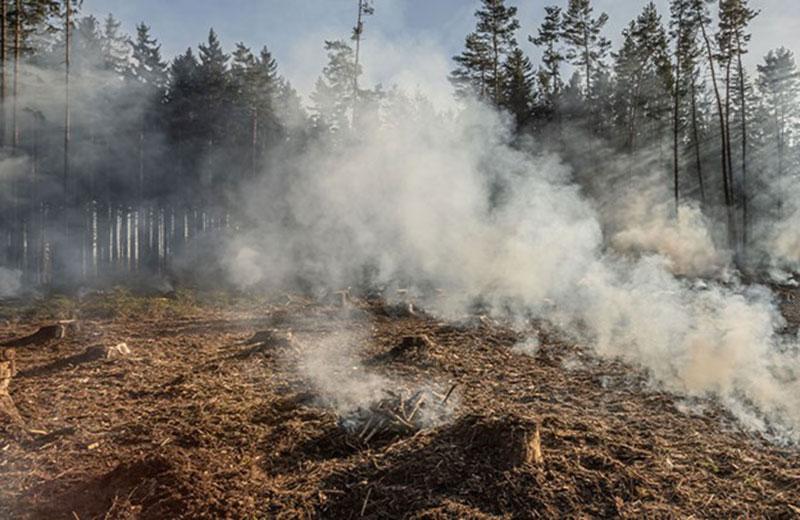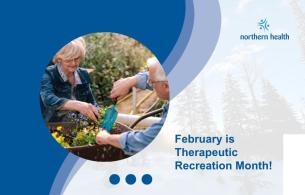Did you know?
About 40% of wildfires in BC are caused by humans (lightning causes the other 60%). Human activity contributes in several ways, either by accident or intentionally.
Examples are:
- Arson
- Open burning
- Vehicle use (including off road vehicles or ORVs)
- Industrial activity
- Fireworks, sky-lanterns, outdoor flame lighting
- Discarded burning items (cigarettes, cigars, matches & joints)
Even when a cigarette is butted out, there may still be enough residual heat to begin smoldering. Make sure to safely dispose of smoking materials. DO NOT toss cigarettes, cigars, matches, or joints on the ground or out of vehicles!
Wildfire smoke – a bigger risk to people who smoke or vape:
Wildfires are dangerous to our lungs and our health due to particulate matter in the air from smoke, which is tiny enough to pass through a dust mask and travel down into the lungs. Even when the fire has been put out, particles may still linger and cause irritation to our eyes, nose, throat, and lungs. Fumes from wildfires pose a health risk to the public and a bigger threat to individuals who smoke or vape.
Keep an eye on symptoms:
A person who smokes or vapes commercial tobacco or cannabis products may already have mild to severe lung disease and be unaware of it. These individuals may experience excess mucous production, tightness in their chest, wheezing, and/or a persistent cough during wildfire season.
Individuals who smoke and/or have a history of asthma or chronic obstructive pulmonary disease (COPD) already have decreased lung capacity. These individuals risk worsening symptoms when exposed to wildfire smoke, which could be fatal.
Caution! Wildfire smoke affects everyone differently. Seek medical attention if you are experiencing severe symptoms such as:
- Shortness of breath
- Chest pain or discomfort
- Sudden onset of cough or irritation of airway
- Dizziness
- Heart pounding, fluttering, or beating irregularly
Tips for smokers to lower their risk:
- If possible, reduce indoor pollution sources such as smoking, vaping, or burning other materials and use an indoor air cleaner (particle filter).
- If unable or not ready to quit smoking or vaping, try switching to a less harmful mode of use by following the Lower Risk Guidelines (LRCUG & LRNUG).
- Connect with your local pharmacist, who can provide withdrawal support.
- Free nicotine replacement therapy can be provided through the BC Smoking Cessation Program as a support for those looking to decreasing their use.
If you or someone you know is interested in quitting or decreasing their use, encourage them to talk to their primary care provider (such as a doctor or nurse practitioner). The following resources are available:
- BC Smoking Cessation Program BC residents can access 12 weeks of free nicotine replacement therapy (gum, patch, and lozenges) per calendar year through their local pharmacy.
- Talk Tobacco offers culturally appropriate support for quitting smoking, vaping and other commercial tobacco use to Indigenous people and communities.
- QuitNow offers free information, support, and counseling by trained professionals by phone, text, or email.
Wildfire safety:
- Wildfire smoke conditions can change quickly so pay attention to trusted forecasts and local conditions. Can you see or smell smoke? Take caution when smoke is present.
- Remain indoors if the air is cleaner indoors. Follow these indoor air quality tips to prepare.
- Keep doors, windows and fireplace dampers shut.
- If you have them, the basement or ground floor levels tend to be cooler and may be less impacted by smoke.
- Drink lots of clean water to stay hydrated and help reduce inflammation.
- Consider reducing, rescheduling, or relocating outdoor activities to indoor settings when Air Quality Health Index (AQHI) risk is moderate to high or if you see or smell smoke. Always monitor for symptoms such as coughing and throat irritation and listen to your body.
- Use air conditioners on the recirculation setting so outside air will not be moved inside. Do the same while driving, keeping your windows and vents closed.
- Make sure your medications are up-to-date and filled. Everyone with asthma or COPD should always have a fast-acting (rescue) inhaler with them.
- Take extra precautions with children, who are more susceptible to smoke because their breathing systems are still developing; they breathe in more air (and therefore more smoke) than adults.
- Older adults are more likely to have heart or lung disease, which can make them more susceptible to smoke. Extra precautions should also be taken during wildfire season.
- Do not have campfires or use backyard fire pits. This adds to the poor air quality.
- Pay attention to air quality reports on your local news channel or websites. Sign up for BC’s air quality subscription service here.
- If available, invest in a portable air cleaner that uses HEPA filtration.
- Portable air cleaners can move throughout the house from room to room.
- Portable air cleaners reduce the number of fine particles generated by wildfire smoke by 40-80%, limiting exposure.
*In this article, as in most public health messages, “tobacco use” refers to the use of commercial tobacco products like cigarettes and chewing tobacco as opposed to traditional uses of tobacco.














Comments